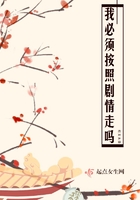Daughter, I could have wisht, that thou hadst taken such an Husband, as (in my judgement) had bene best fitting for thee: yet if thou madest election of one answerable to thine owne good liking, I have no just reason to be offended therewith.My greatest cause of complaint is, thy too severe concealing it from me, and the small trust thou didst repose in me, because thou hast lost him before I knew him.
Neverthelesse, seeing these occasions are thus come to passe, and accidents already ended, cannot possibly be re-called, it is my will, that as I would gladly have contented thee, by ****** him my Son in Law if he had lived, so I wil expresse the like love to him now he is dead.And so turning himselfe to his kindred and friends, lovingly requested of them, that they would grace Gabriello with most honourable obsequies.
By this time, the kindred and friends to the dead man (uppon noise of his death bruited abroad) were likewise come to the Pallace, yea, most of the men and women dwelling in the Cittie, the bodie of Gabriello being laide in the midst of the Court, upon the white Damaske shrowd given by Andreana, with infinite Roses and other sweet Flowers lying theron: and such was the peoples love to him, that never was any mans death, more to be bemoaned and lamented.Being delivered out of the Court, it was carried to buriall, not like a Burgesse or ordinary Citizen, but with such pompe as beseemed a Lord Baron, and on the shoulders of very noble Gentlemen, with great honor and reverence.
Within some few dayes after, the Potestate pursuing his former motion of mariage, and the father mooving it to his daughter, she would not by any meanes listen thereto.And he being desirous to give her contentment, delivered her and her Chamber-maid into a Religious Abbey, very famous for devotion and sanctity, where afterwards they ended their lives.
THE FOURTH DAY, THE SEVENTH NOVELL
WHEREBY IS GIVEN TO UNDERSTAND, THAT LOVE AND DEATH DO USETHEIR POWER EQUALLY ALIKE, AS WELL UPON POORE AND MEANEPERSONS, AS ON THEM THAT ARE RICH AND NOBLEFaire Simonida affecting Pasquino, and walking with him in a pleasant garden, it fortuned, that Pasquino rubbed his teeth with a leafe of Sage, and immediately fell downe dead.Simonida being brought before the bench of Justice, and charged with the death of Pasquino, she rubbed her teeth likewise with one of the leaves of the same Sage, as declaring what shee saw him do, and thereon she dyed also in the same manner.
Pamphilus having ended his Tale, the King declaring an outward shew of compassion, in regard of Andreanaes disastrous Fortune;fixed his eye on Madam Aemilia, and gave her such an apparant signe, as expressed his pleasure, for her next succeeding in discourse; which being sufficient for her understanding, thus she began.Faire assembly, the Novell so lately delivered by Pamphilus, maketh me willing to report another to you, varying from it, in any kinde of resemblance; onely this excepted: that as Andreana lost her lover in a Garden, even so did she of whom I am now to speake.And being brought before the seate of Justice, according as Andreana was, freed her selfe from the power of the Law; yet neither by force, or her owne vertue, but by her sodaine and inopinate death.And although the nature of Love is such (according as we have oftentimes heeretofore maintained) to make his abiding in the houses of the Noblest persons; yet men and women of poore and farre inferiour quality, do not alwayes sit out of his reach, though enclosed in their meanest Cottages; declaring himselfe sometime as a powerfull commaunder in those humble places, as he doth in the richest and most imperious Palaces.As will plainly appeare unto you, either in all, or a great part of my Novell, whereto our Citie pleadeth some title; though, by the diversity of our discourses, talking of so many severall accidents; we have wandred into many other parts of the world, to make all answerable to our owne liking.
It is not any long time since, when there lived in our City of Florence, a young and beautifull Damosell, yet according to the nature of her condition; because she was the Daughter of a poore Father, and called by the name of Simonida.Now, albeit she was not supplied by any better means, then to maintaine her selfe by her owne painfull travell, and earne her bread before she could eate it, by carding and spinning to such as employed her; yet was she not so base or dejected a spirit, but had both courage and sufficient vertue, to understand the secret soliciting of love, and to distinguish the parts of well deserving both by private behaviour and outward ceremony.As naturall instinct was her first tutor thereto, so wanted she not a second maine and urging motion, a chip hewed out of the like Timber, one no better in birth then her selfe, a proper young springall, named Pasquino, whose generous behaviour, and gracefull actions (in bringing her dayly wooll to spin, by reason his Master was a Clothier) prevailed upon her liking and affection.















